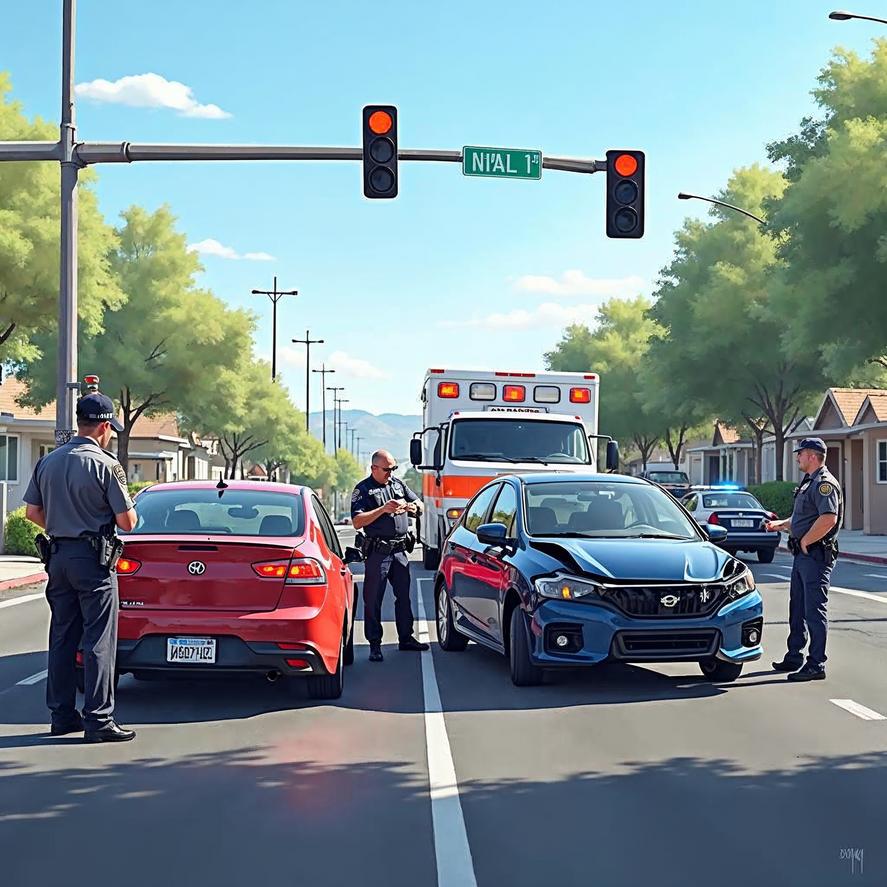
Unfortunately, based on your response, you may not qualify to file a claim. Most personal injury cases must be filed within two years of the accident, in accordance with the statute of limitations. Please consult with a licensed attorney to explore any possible exceptions or additional options.
Rear-end collisions are one of the most common types of car accidents, especially in busy urban areas like Phoenix. These accidents can cause a range of injuries from minor whiplash to severe damage, impacting victims both physically and financially. Understanding the claims process after a rear-end collision in Phoenix is vital for securing fair compensation and protecting your rights.
A rear-end collision occurs when one vehicle crashes into the back of another. These crashes often happen due to distracted driving, tailgating, sudden stops, or adverse road conditions. In Phoenix, with its heavy traffic and frequent stops at intersections, rear-end accidents can be quite common.
When you're involved in a rear-end accident, knowing the claims process can help you avoid common pitfalls. It's crucial to report the accident promptly, gather evidence, and communicate effectively with insurance companies. Often, insurers may try to minimize your claim, so being well-informed helps ensure you receive the compensation you deserve.
Immediately after the collision, check for injuries and call emergency services if needed. Even if injuries seem minor at first, it's advisable to get a medical evaluation as some symptoms might develop later. Your health comes first.
Gather as much evidence as possible at the scene. Take photos of vehicle damage, road conditions, traffic signals, and any visible injuries. Obtain contact information from witnesses and other drivers involved. This documentation will be key when filing your claim.
Notify the local police and file an accident report. A formal police report supports your claim and provides an official account of the crash circumstances. In Phoenix, specific state laws govern the accident reporting process.
Contact your insurance company and the other party’s insurer to report the incident. Provide accurate information but avoid admitting fault or speculating on details. If you need guidance, resources such as the rear-end collision claims process in Phoenix can be very helpful.
Despite the straightforward nature of rear-end collisions, claimants often face challenges:
Understanding these challenges makes it easier to respond effectively and protect your interests.
Strong evidence is critical in proving liability and damages. Besides photos and police reports, consider collecting:
The more comprehensive your documentation, the better positioned you are for a successful claim.
Damages you may recover in a rear-end accident claim include medical expenses, lost wages, property damage, and pain and suffering. Knowing what to include in your claim ensures a fair evaluation of your losses.
Arizona has statute of limitations that require you to file your claim within a certain period after the accident. Missing these deadlines can result in losing your right to compensation. For detailed timeframes and requirements, refer to Arizona’s claim filing time limits.
While it’s possible to manage your claim independently, consulting knowledgeable resources can be invaluable, especially if your case involves serious injuries or disputed fault. Learning about how to get claim help can guide you towards maximizing your settlement.
To understand more about car accident safety and statistics, visit the National Highway Traffic Safety Administration (NHTSA) official site. This site offers valuable information on crash prevention and safety measures.
Rear-end collisions in Phoenix require careful attention to detail during the claims process. From documenting the accident to understanding your rights and potential challenges, being informed helps you protect yourself and pursue the compensation you deserve. Utilize trusted resources and stay proactive to navigate your claim successfully.
Unfortunately, based on your response, you may not qualify to file a claim. Most personal injury cases must be filed within two years of the accident, in accordance with the statute of limitations. Please consult with a licensed attorney to explore any possible exceptions or additional options.